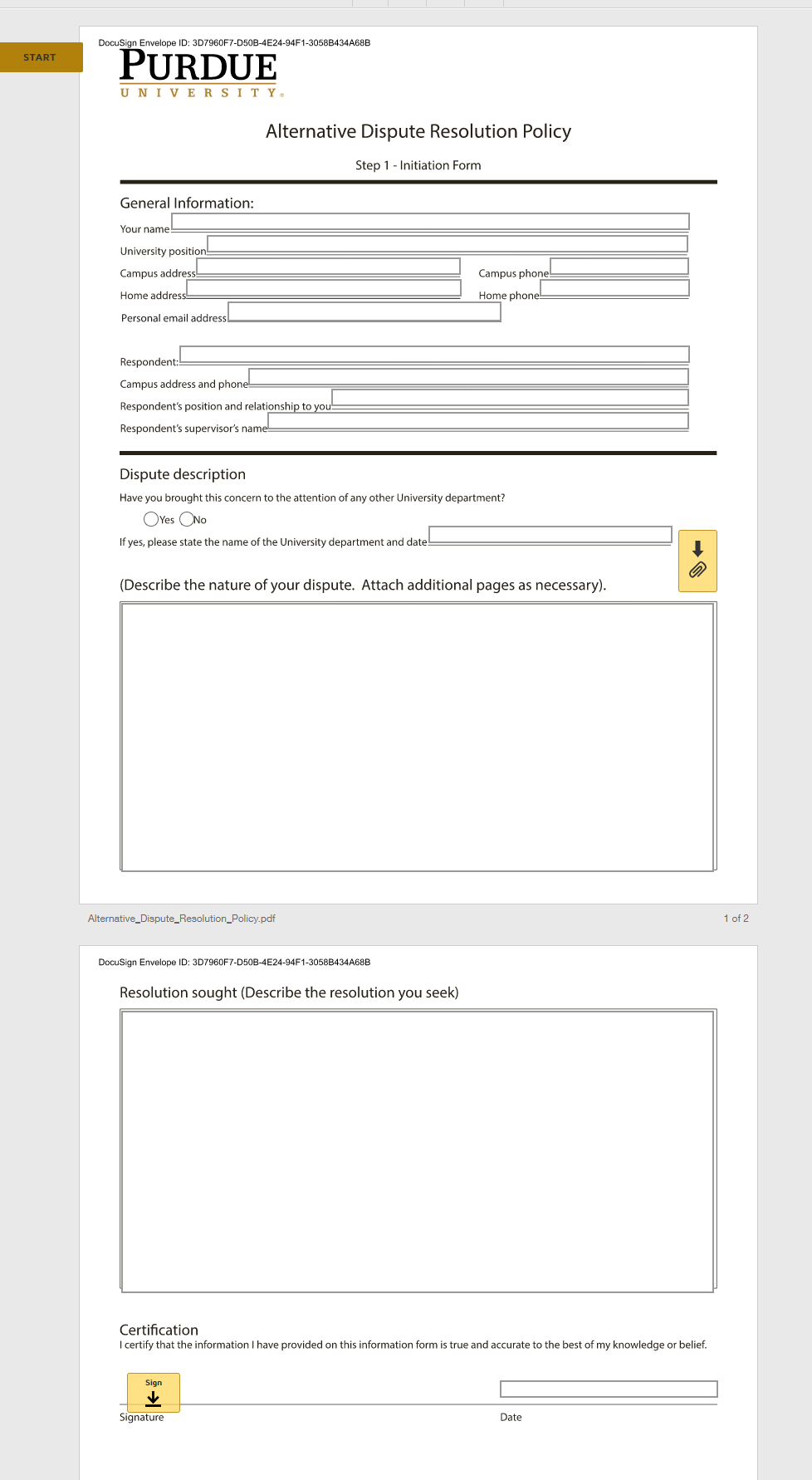Grievance Resolution/Alternative Dispute Resolution (ADR)
Purdue University has a well-established tradition of excellence in all its endeavors. To sustain this standard, it is vital for employees and supervisors to collaborate in a respectful and collegial manner. The University is committed to fostering a climate that values its employees and promotes the prompt and fair resolution of their concerns. All employees are encouraged to seek answers to questions or concerns regarding their employment and working conditions through regular supervisory channels.
When informal discussions do not lead to a satisfactory resolution and the matter qualifies as a Dispute Resolution (VI.D.I), employees covered by this policy may utilize the Dispute Resolution Procedures to address the issue.
Eligibility
The ADR process is available to all staff, postdoctoral researchers, clinical residents, clinical interns, lecturers, and graduate student staff. However, temporary employees, those who have not completed 90 days of employment, undergraduate student employees, and individuals covered under the Faculty Grievances (I.B.1) do not have access to this process.
Disputes covered by this process include complaints alleging that an employee has been, or is being, adversely affected by:
- Improper application of University rules, regulations, or policies; or
- Improper actions, inactions, or decisions by any supervisor, department head, or individuals with administrative control and responsibility.
- Certain complaints, objections, or questions fall outside the scope of this process. These should be addressed through informal communication with the direct supervisor or HR Business Partner.
Disputes must be directed at the University as an entity, not at an individual, and must not have been previously raised through any other University policy or procedure.
Initiating The ADR Process
If informal discussions with the supervisor (respondent) do not resolve the issue, the employee (initiator) may submit an Alternative Dispute Resolution Initiation Form. This form should include a description of the complaint and the desired resolution. It must be submitted within 10 workdays of the alleged wrongful act.
Note: Once you begin completing the form, HR will automatically receive it. Therefore, ensure you are ready to submit. If you need to pause while filling it out, select "Finish this Later." Use this image to view the form.
If the Dispute meets the definition and is submitted timely, an ADR Specialist will be assigned to facilitate the next steps in the process.
Informal Step 1 and Formal Step 2
Step 1
The ADR Specialist will outline the basis of the dispute along with the relevant policies and procedures for resolution. The ADR Specialist does not serve as an investigator or representative for either party and does not make determinations or judgments regarding the matter. Their role is to help both parties understand each other’s interests and perspectives and to develop potential solutions collaboratively.
If a resolution is not reached in Step 1, the employee may initiate the Step 2 process within 5 workdays. New issues or complaints cannot be added at this stage.
Step 2
In the formal Step 2 process, a Review Committee will evaluate all pertinent information and make a recommendation to the University decision-maker, who will render a final decision.
Note: There is no requirement for the parties to participate in the informal Step 1 process. Upon submitting the Alternative Dispute Resolution Initiation form, the initiator may waive Step 1, and immediately proceed to the formal Step 2 process.
 The Alternative Dispute Initiation Form is an online DocuSign Form. This is a screen capture of the form.
The Alternative Dispute Initiation Form is an online DocuSign Form. This is a screen capture of the form.